At a time of year when every loss seems especially poignant, our article this week highlights Grief Awareness Week, which ended Thursday. Tony Horsfall, author of Grief Notes, shares wisdom hard won after losing his wife, Evelyn, to cancer during lockdown. He writes for friends and family who want to help, as well as for those who grieve.
11 December 2022
The aim of Grief Awareness Week (2–8 December) is to help people understand their grief better, educate others in how to support those who grieve, and raise the profile of organisations who help people through their grief.
Living through grief
There has probably never been a time when as a country we have been more conscious of grief than following the death of Queen Elizabeth II in September. When we entered into ten days of national mourning, everyone became aware of her death, and many felt her loss personally. Hopefully we are now more grief aware than ever before.
People nowadays seem not to talk about death directly, preferring to refer to it obliquely as someone’s ‘passing’. We are often uncomfortable around those who grieve, not knowing what to say or how to respond to tears and deep emotion. Those who mourn are often encouraged to ‘get over’ their grief as quickly as possible and are comforted by trite clichés, such as ‘It’s for the best’ or ‘She is in a better place.’
Yet death touches every one of us at some time. Death is a sad reality that we must all eventually come to terms with, and it is healthier to face grief head on than to deny or avoid it.
‘It is healthier to face grief head on than to deny or avoid it.’
Every grief is unique
Death may be long and drawn-out or sudden and expected; it may involve much suffering or be relatively peaceful. Everyone responds to the loss of a loved one differently, and our grief will be unique. The depth of our loss will be according to the closeness of the relationship and/or the impact of the death upon our on-going life. Typically, grief will involve a cluster of emotions, including sadness, despair, shock, numbness, anger and confusion. Some will cry much, others just a little; most will feel bereft and empty. It is the start of a journey that no one wants to make, but grieving is a process, and it often takes longer than expected to work itself through.
When my wife died in 2020 after a long illness, there was a mixture of relief (that her suffering was over) and release (that the responsibility of caring for her was lifted). Grieving was difficult as we were in the midst of a pandemic lockdown; the usual sources of support were missing.
Initially I coped well with living by myself, but after about six months the reality of my loss hit home. In the darkness of winter, I felt isolated and acutely alone. There seemed no hope for my future. I had to battle really hard to keep going and needed to intentionally seek God for his help. An online grief support group helped, as did zoom conversations with friends, but it was not easy. When spring came, my mood lifted and I found hope returning.
‘In the darkness of winter, I felt isolated and acutely alone… I had to battle really hard to keep going and needed to intentionally seek God for his help.’
Complex, unpredictable, untidy… the reality of grief
For me, understanding the process of grief was important, so I read widely. The popular understanding of the grief journey as a linear progression through the stages of denial, anger, bargaining, depression and acceptance has much merit, but it is generally accepted that grief is far more complex and not so predictable or tidy.
Newer theories identify the oscillation of feelings that take place, one day happy and another day sad: moving continually backwards and forwards between dealing with it, then avoiding it. Life becomes a jumble of varying emotions rolled into one untidy ball.
Another clarifies that rather than ‘getting over’ our grief, we adjust to it over time and slowly incorporate into our life; it is not that the grief goes away but we that grow around it. Grief does not get smaller, but we grow bigger as we come to terms with the loss.
‘Grief does not get smaller, but we grow bigger as we come to terms with the loss.’
Something that helped me was the realisation of the danger of passivity when dealing with grief, of letting it overwhelm us and trap us in our sadness. It takes great courage, but when the time is right and we feel ready, we can fight back. We can refuse to be held prisoner to negative emotions and choose to live again and embrace the purpose that God still has for us.
What the Bible says about grief
The Bible has so much to say about grief, validating the honest expression of our pain but encouraging us to find comfort and hope in God. Jesus was a man of sorrows, and someone acquainted with grief, and he knows how to help us in our time of need. I turned again and again to familiar scriptures, inspiring songs and helpful books to strengthen me on my journey. I also talked regularly to a grief counsellor and another wise friend, asking my questions, venting my frustrations, letting my tears flow.
Many of us will have relatives, friends and colleagues who are grieving. How can we help them? In the early stages we may not need to say much at all but simply offer the gift of our presence and any practical help that seems appropriate. A well-chosen card with some carefully crafted words can mean a great deal.
Later on, the bereaved person may well value talking about their loved one, sharing stories about their life and finding the chance to smile and laugh, keeping memories alive. Being a good listener is always appreciated. Some may value help in sorting through and dispersing unwanted belongings. Offer to go out with them and do some things which may be considered ‘normal’.
Love and compassion will make us wise and sensitive in our support. Be especially aware of significant days (birthdays, anniversaries) and special occasions (holidays and Christmas). Look out for those who seem especially lonely or are finding daily life difficult. Above all, let people grieve at their own pace and in their own way.
‘Love and compassion will make us wise and sensitive in our support… Above all, let people grieve at their own pace and in their own way.’
No one grieves perfectly. The temptation is to rush the process and move on with life before we are ready. Even now, two years later, I can find my eyes filling with tears as my grief is triggered by some unexpected memory or association, but that’s fine. We do not want to forget. Why should we?
Tony has also written for our Living Faith blog about his first Christmas alone.
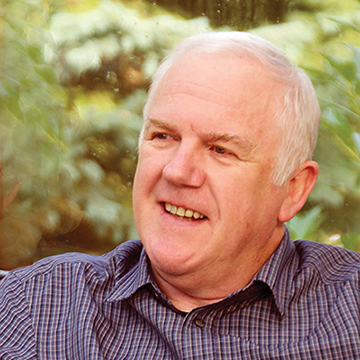
Tony Horsfall is an author, retreat leader and mentor based in Bournemouth. He is married to Jilly, a counsellor, and between them they have four married children and six grandchildren. They are part of GodFirst church and share a passion to see people thrive in life and ministry.
Tony has written many books for BRF and has contributed across the range of our Bible reading notes.
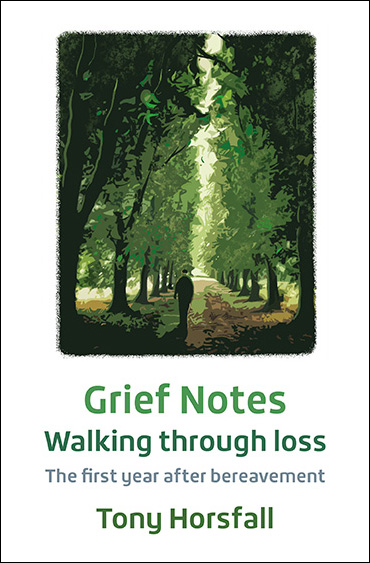
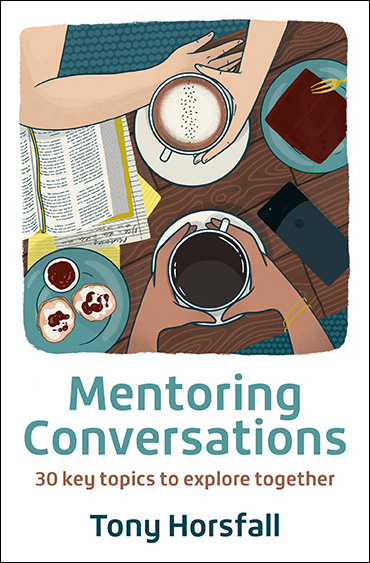
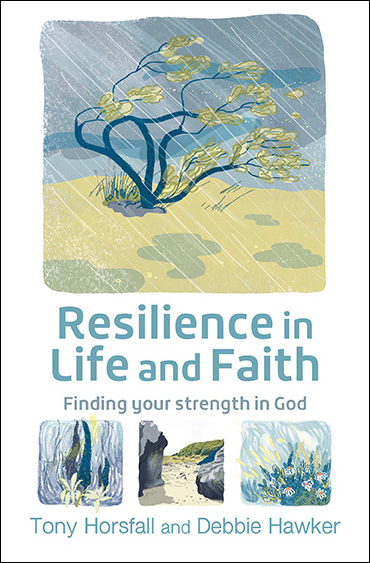
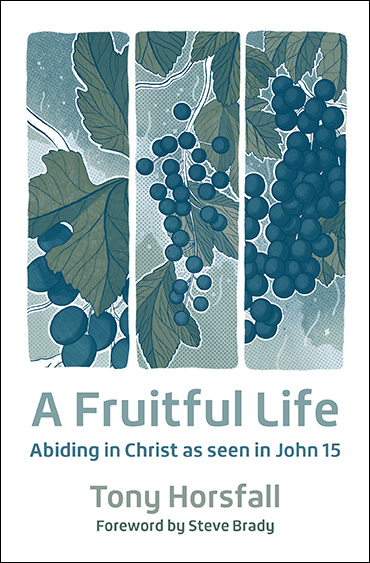

Big Give: thank you!
Thanks to the amazing generosity of our supporters, we have exceeded our Big Christmas Challenge target of £20,000 by raising just over £24,000 for BRF’s Parenting for Faith ministry.
This impressive sum will help to ensure the continuing impact of Parenting for Faith on the lives of parents, carers, families, churches and communities throughout the country. In May 2021 an evaluation of the work of Parenting for Faith by NCVO researcher Amira Tharani highlighted the impact and effectiveness of the ministry. To find out the difference Parenting for Faith makes to churches, communities, parents and their families, do read the report if you haven’t already done so.
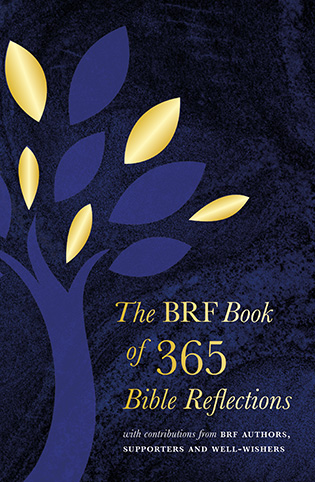
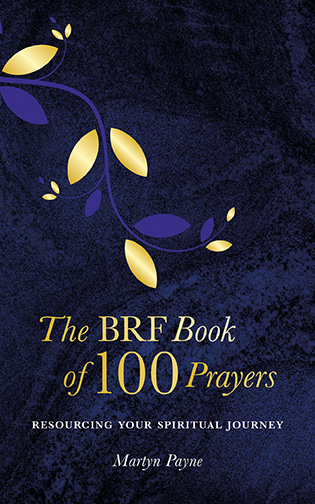
Special offer on gift books
There’s still time to enjoy our special offer of 20% off when you order both The BRF Book of 365 Bible Reflections and The BRF Book of 100 Prayers together.
